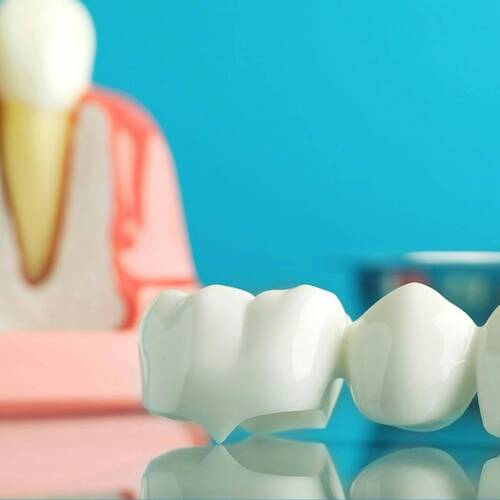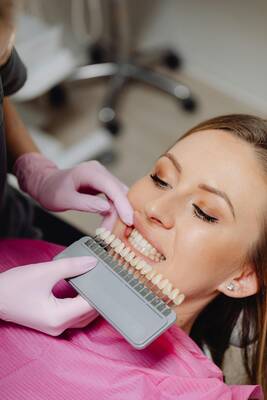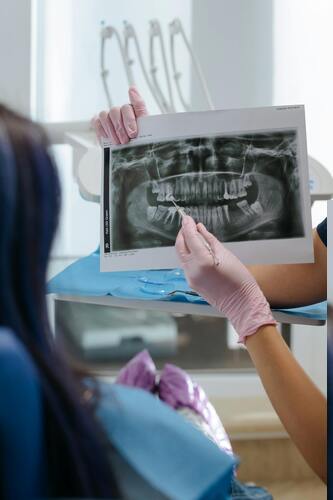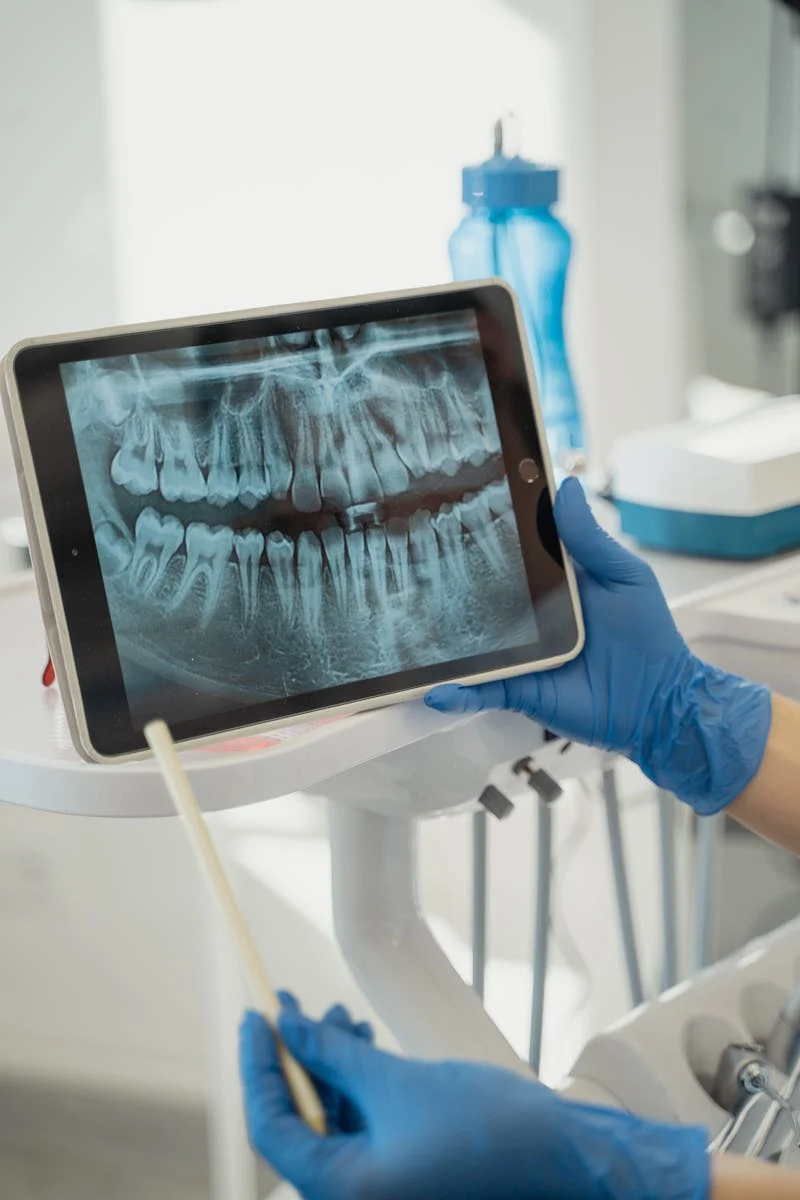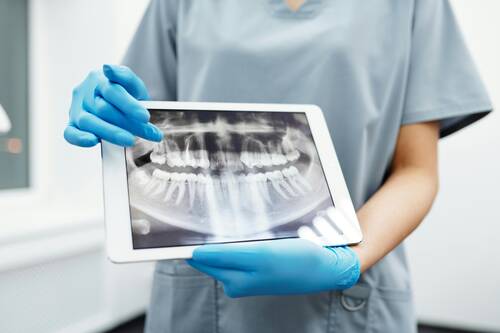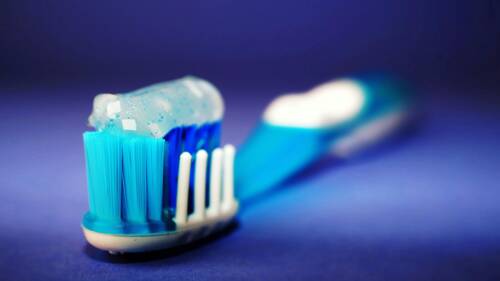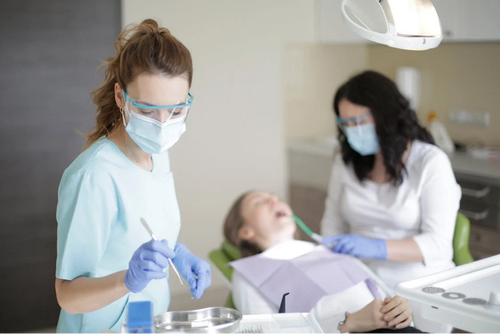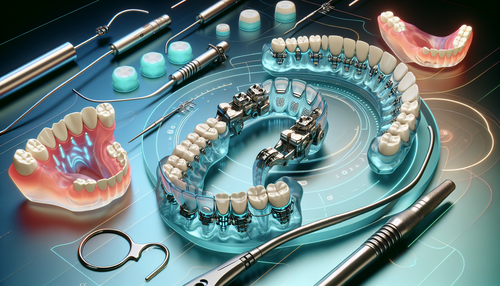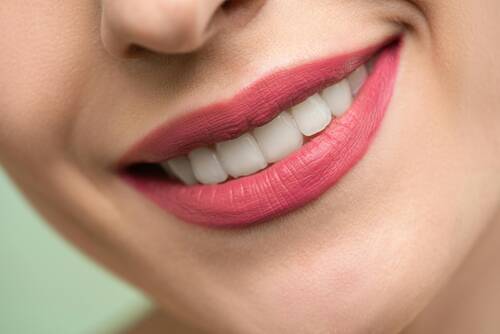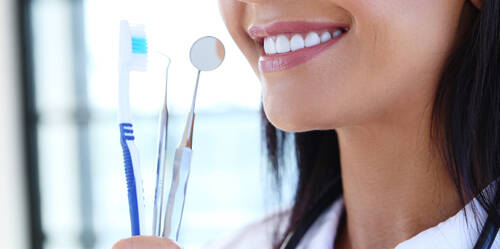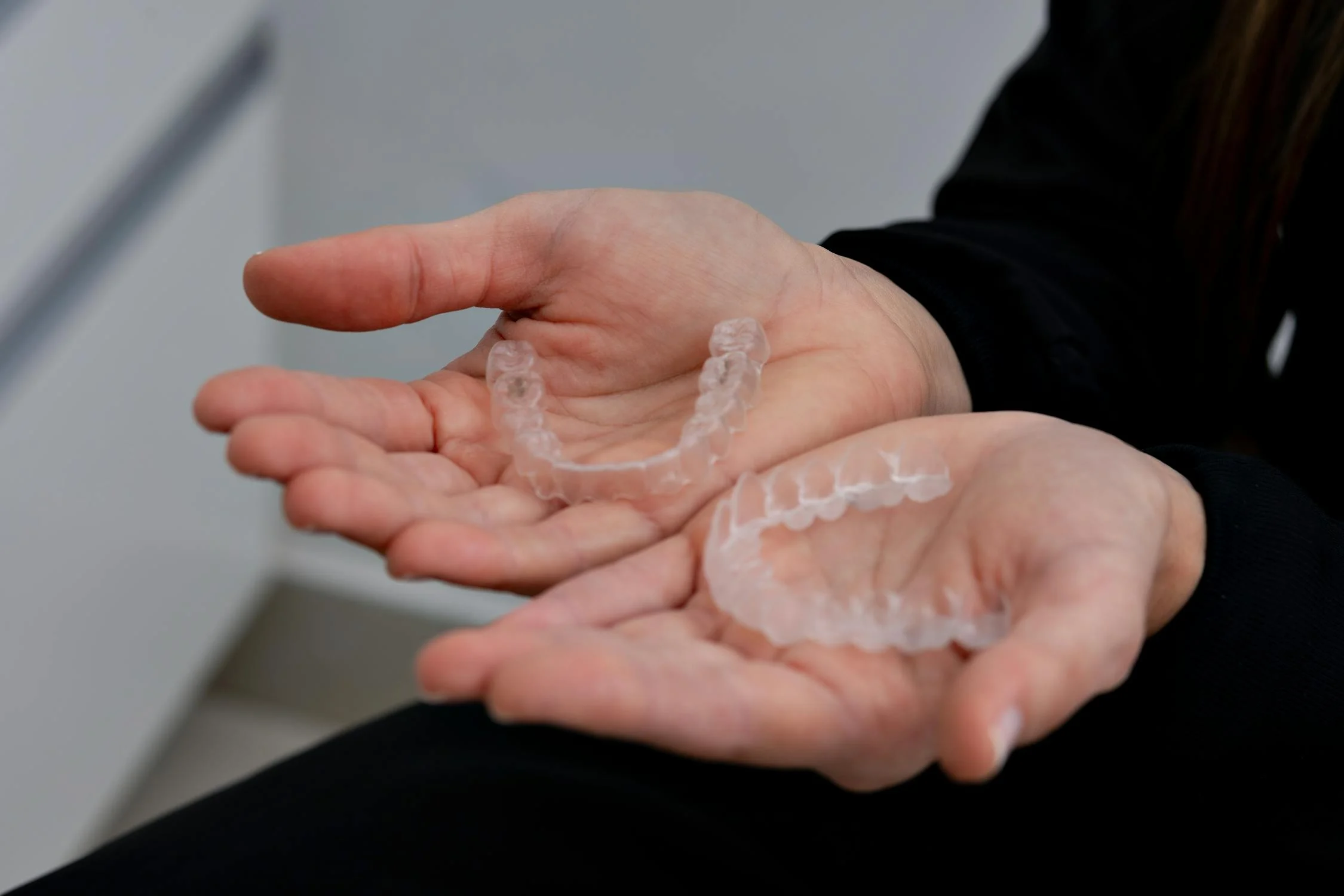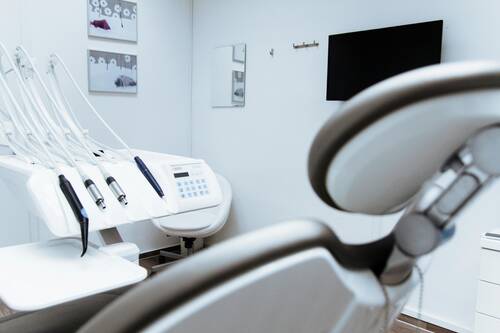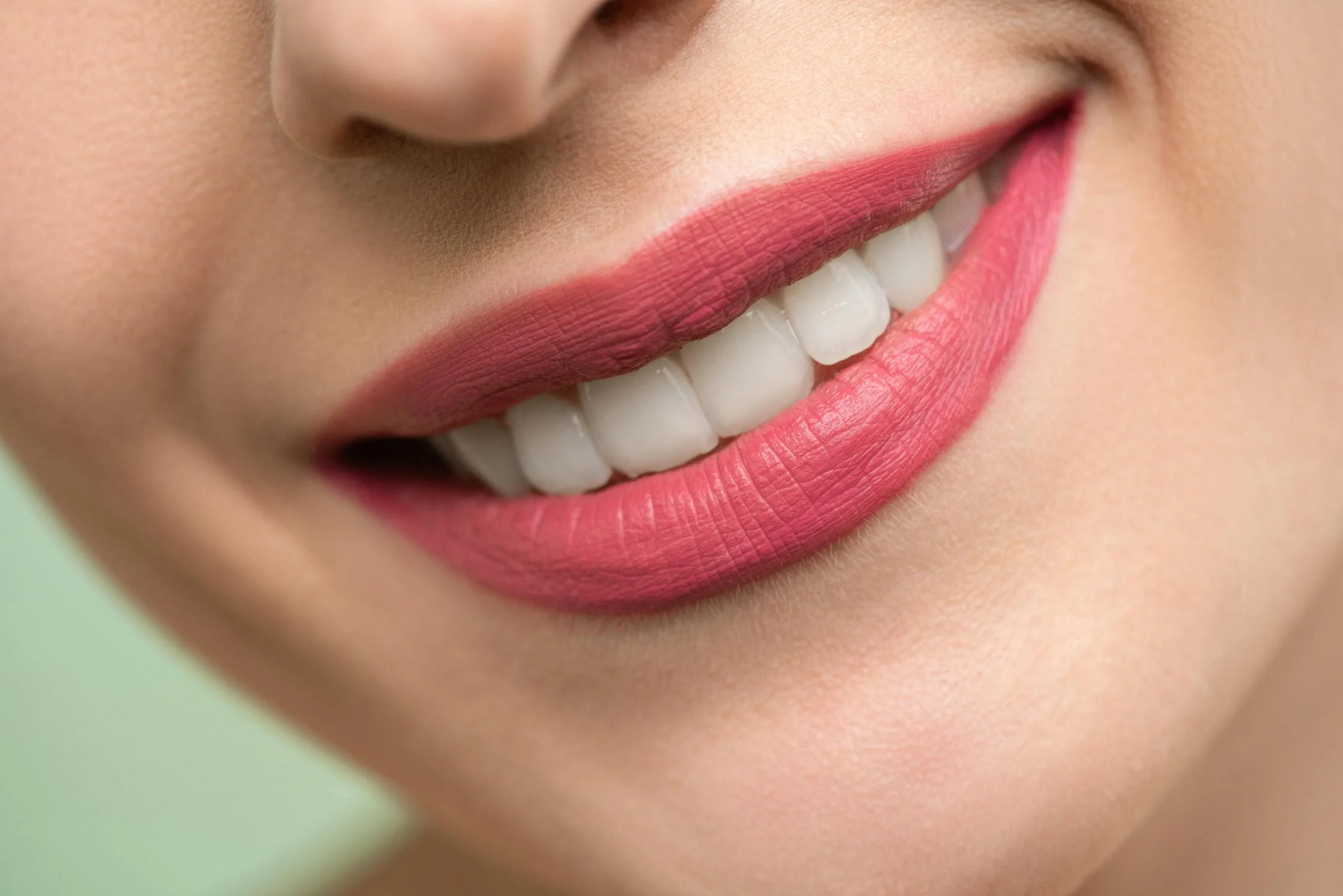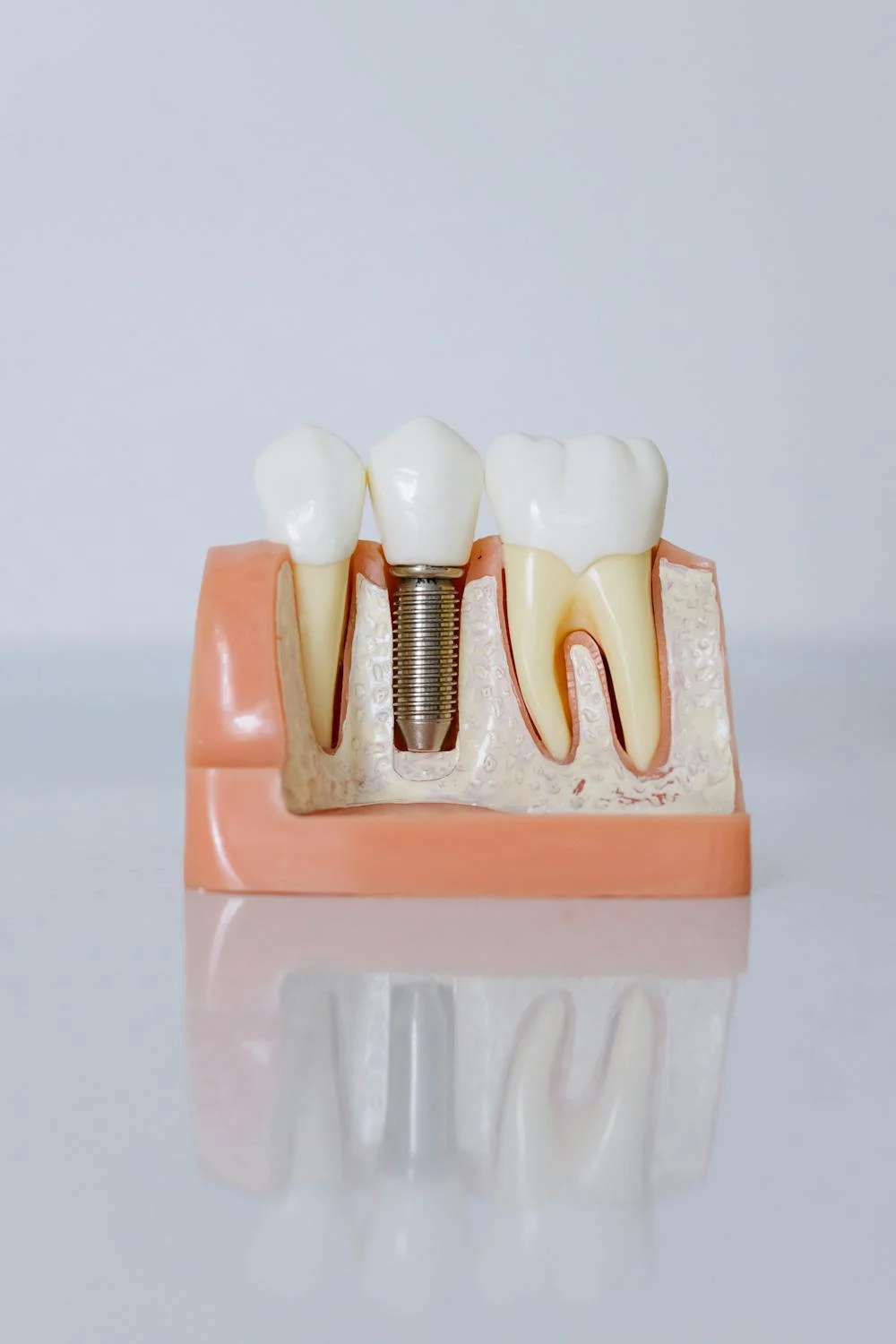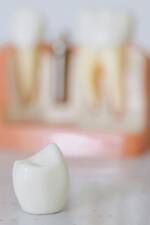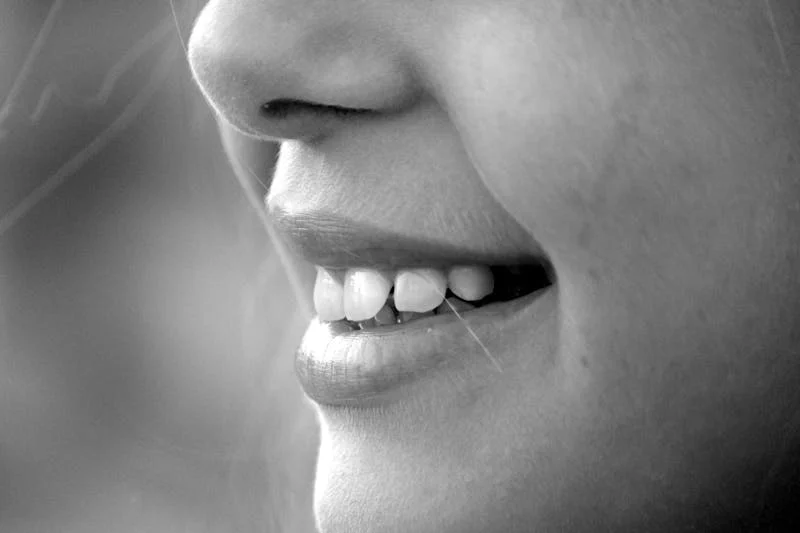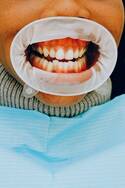Dental bridges are the most common dental prostheses that have been used to treat lost teeth. However, not many are aware of the conditions when a dental bridge is indicated, their types, and their horizon of functionality.
In this article, we will study how effective dental bridges are and how to know which bridges are the best choice for you.
If you have been searching for technical information about dental bridges, this article may answer all your queries.
Dental bridges: mechanism and structure
Dental bridges can be considered for the replacement of more than one missing tooth.
Parts of a dental Bridge
A dental bridge consists of three parts:
Pontic: Pontic is an artificial tooth that replaces missing tooth or teeth. These are the most vulnerable parts of the dental bridge.
Pontic is completely dependent on the abutment teeth and crowns over it.
Abutment: Dental bridges need surrounding teeth as anchors to stay in place. This support is called abutment teeth. The abutment teeth should be very strong because they share the chewing load of the dental bridge as well.
Crown: The crown covers the abutment teeth or Implant just like a single crown.
The biggest difference between a crown and a bridge is that a single crown does not need any support from the surrounding teeth or implants, but a dental bridge needs sound healthy neighboring teeth support.
(more…)
Our appearance plays a significant role in shaping our self-esteem and mental well-being. The way we perceive ourselves affects our confidence, social interactions, and overall happiness. One of the most impactful aspects of our appearance is our smile. Dental imperfections such as chipped, discoloured, or misaligned teeth can cause feelings of self-consciousness, leading to anxiety and lower self-esteem. Fortunately, modern cosmetic dentistry provides an effective solution for enhancing one’s smile and, in turn, improving mental well-being.
 The Psychological Impact of Dental Aesthetics
A genuine, uninhibited smile can make people appear more approachable and friendly, strengthening personal and professional relationships. However, when people feel insecure about their teeth, they may unconsciously limit their smiles, affecting the way they communicate and engage with others. This hesitation can create a cycle of self-doubt, reinforcing negative feelings about one’s appearance.
Improving one’s smile can break this cycle and significantly boost confidence. Studies suggest that individuals who undergo cosmetic dental treatments report increased happiness, improved social interactions, and a better overall quality of life. Addressing minor imperfections can make a huge difference in how one feels daily, reducing self-consciousness and encouraging a more positive self-image.
Studies also highlight that 70% of individuals with dental concerns feel their confidence is negatively affected, impacting their personal and professional lives. In extreme cases, dental insecurities can contribute to body dysmorphic disorder (BDD), a condition where individuals excessively worry about perceived flaws in their appearance.
(more…)
The Psychological Impact of Dental Aesthetics
A genuine, uninhibited smile can make people appear more approachable and friendly, strengthening personal and professional relationships. However, when people feel insecure about their teeth, they may unconsciously limit their smiles, affecting the way they communicate and engage with others. This hesitation can create a cycle of self-doubt, reinforcing negative feelings about one’s appearance.
Improving one’s smile can break this cycle and significantly boost confidence. Studies suggest that individuals who undergo cosmetic dental treatments report increased happiness, improved social interactions, and a better overall quality of life. Addressing minor imperfections can make a huge difference in how one feels daily, reducing self-consciousness and encouraging a more positive self-image.
Studies also highlight that 70% of individuals with dental concerns feel their confidence is negatively affected, impacting their personal and professional lives. In extreme cases, dental insecurities can contribute to body dysmorphic disorder (BDD), a condition where individuals excessively worry about perceived flaws in their appearance.
(more…)
 The Psychological Impact of Dental Aesthetics
A genuine, uninhibited smile can make people appear more approachable and friendly, strengthening personal and professional relationships. However, when people feel insecure about their teeth, they may unconsciously limit their smiles, affecting the way they communicate and engage with others. This hesitation can create a cycle of self-doubt, reinforcing negative feelings about one’s appearance.
Improving one’s smile can break this cycle and significantly boost confidence. Studies suggest that individuals who undergo cosmetic dental treatments report increased happiness, improved social interactions, and a better overall quality of life. Addressing minor imperfections can make a huge difference in how one feels daily, reducing self-consciousness and encouraging a more positive self-image.
Studies also highlight that 70% of individuals with dental concerns feel their confidence is negatively affected, impacting their personal and professional lives. In extreme cases, dental insecurities can contribute to body dysmorphic disorder (BDD), a condition where individuals excessively worry about perceived flaws in their appearance.
(more…)
The Psychological Impact of Dental Aesthetics
A genuine, uninhibited smile can make people appear more approachable and friendly, strengthening personal and professional relationships. However, when people feel insecure about their teeth, they may unconsciously limit their smiles, affecting the way they communicate and engage with others. This hesitation can create a cycle of self-doubt, reinforcing negative feelings about one’s appearance.
Improving one’s smile can break this cycle and significantly boost confidence. Studies suggest that individuals who undergo cosmetic dental treatments report increased happiness, improved social interactions, and a better overall quality of life. Addressing minor imperfections can make a huge difference in how one feels daily, reducing self-consciousness and encouraging a more positive self-image.
Studies also highlight that 70% of individuals with dental concerns feel their confidence is negatively affected, impacting their personal and professional lives. In extreme cases, dental insecurities can contribute to body dysmorphic disorder (BDD), a condition where individuals excessively worry about perceived flaws in their appearance.
(more…)
Table of Contents
- Understanding Cosmetic Dentistry
- Common Smile Issues and Their Remedies
- The Role of Technology in Present-Day Dentistry
- Choosing the Right Cosmetic Dentist
- The Financial Implications of Cosmetic Dentistry
- Personal Stories of Smile Transformations
- Benefits Beyond Aesthetics
- Call to Action: Take the First Step to a Brighter Smile Today!
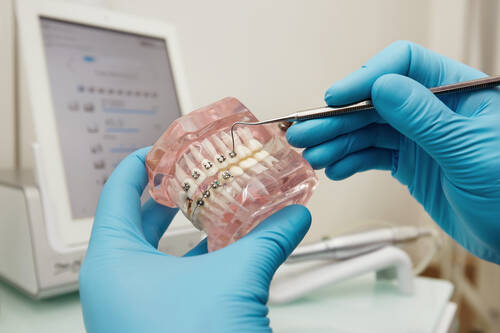 Deciding to undergo orthodontic treatment with braces is a big decision; of course, it comes with questions.
There are plenty of braces myths floating about, some harmless and some that can cause confusion. Today, we'll clear things up by giving you straight, factual answers that are simple to understand.
Deciding to undergo orthodontic treatment with braces is a big decision; of course, it comes with questions.
There are plenty of braces myths floating about, some harmless and some that can cause confusion. Today, we'll clear things up by giving you straight, factual answers that are simple to understand.
Myth 1: Braces are only for kids and teens
This is just a myth. Yes, getting braces as a young person gives you a much greater chance of faster results. However, you can still get adult braces. Some studies show that more and more adults are going for orthodontic treatment. The reasons range from cosmetic to functional, and there’s no wrong reason to choose to have your teeth straightened. In fact, as an adult you might be more likely to follow through with your orthodontic treatment plan. Whether you need basic metal braces or something like Invisalign, you can still have a beautiful smile. (more…)
Dentistry thrives on teamwork, with every professional contributing their skills to ensure patients receive the best possible care. From the dentists leading the charge to the technicians working behind the scenes, each role is vital to the success of a practice. Let’s take a closer look at these roles and why dental indemnity insurance is a must-have for all professionals.
The Dentist: Leading the Way in Patient Care
Dentists are the central figure in a dental practice, responsible for diagnosing, treating, and managing a variety of oral health issues. Their work ranges from routine check-ups and fillings to complex procedures such as root canals and oral surgery.Key responsibilities:
- Diagnosing oral health problems.
- Creating and implementing treatment plans.
- Educating patients on oral hygiene and preventive care.
- Supervising other team members, such as dental nurses and hygienists.
 Advancements in dental technology are transforming patient care, making procedures more precise, efficient, and comfortable. These innovations, from digital diagnostics to minimally invasive treatments, help dentists enhance oral health while improving patient experiences.
Digital Imaging and AI-Assisted Diagnostics
Traditional X-rays are being replaced by advanced digital imaging systems that provide clearer, more detailed views of teeth and gums. Cone beam computed tomography (CBCT) offers 3D imaging, allowing dentists to diagnose issues with unprecedented accuracy. Artificial intelligence (AI) is also making an impact by analyzing images to detect cavities, gum disease, and other conditions earlier than ever before. This leads to faster, more effective treatment plans.
Laser Dentistry for Painless Procedures
Laser technology is revolutionizing dental procedures by reducing discomfort and speeding up healing times. Soft tissue lasers are used for gum reshaping, removing infected tissue, and treating periodontal disease with minimal bleeding and swelling. Hard tissue lasers can prepare cavities without the need for drills, making procedures less stressful for patients.
(more…)
Advancements in dental technology are transforming patient care, making procedures more precise, efficient, and comfortable. These innovations, from digital diagnostics to minimally invasive treatments, help dentists enhance oral health while improving patient experiences.
Digital Imaging and AI-Assisted Diagnostics
Traditional X-rays are being replaced by advanced digital imaging systems that provide clearer, more detailed views of teeth and gums. Cone beam computed tomography (CBCT) offers 3D imaging, allowing dentists to diagnose issues with unprecedented accuracy. Artificial intelligence (AI) is also making an impact by analyzing images to detect cavities, gum disease, and other conditions earlier than ever before. This leads to faster, more effective treatment plans.
Laser Dentistry for Painless Procedures
Laser technology is revolutionizing dental procedures by reducing discomfort and speeding up healing times. Soft tissue lasers are used for gum reshaping, removing infected tissue, and treating periodontal disease with minimal bleeding and swelling. Hard tissue lasers can prepare cavities without the need for drills, making procedures less stressful for patients.
(more…)
Long considered as one of the best methods to save naturally occurring teeth severely damaged or diseased, root canal therapy which is carried out by an endodontist—a dental specialist—the inner sections of the tooth are treated with an eye on maintaining its structure. Seeking the knowledge of an Endodontist in New York City or abroad may make all the difference for those suffering tooth pain, sensitivity, or infection in keeping a good smile. Realizing the importance of root canal treatment helps one to see its part in general well-being and dental hygiene.
Knowing Root Canal Therapy
Designed to remove diseased or inflammatory pulp from inside a tooth, root canal treatment—also known as endodontic therapy—is nerves, blood arteries, and connective tissue abound in the pulp; trauma, profound decay, or repetitive dental work can all cause infection. Untreated an infected pulp can cause extreme pain, abscess development, and possibly tooth loss. The endodontist removes the injured pulp, cleans and sterilizes the inner tooth, and leaves a biocompatible material filling in place during a root canal. This procedure removes the cause of infection and discomfort, therefore enabling the tooth to operate normally.
(more…)
Dental Research / 13.01.2025
The Benefits of Biomimetic Dentistry: A Closer Look at Practices in Newport Beach
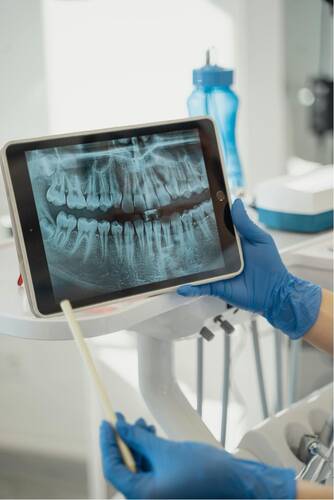 Biomimetic dentistry, a progressive approach to oral care, is gaining traction in locales such as Newport Beach, California. This method, which emphasizes the replication of natural tooth structure and function, has proven advantageous regarding durability and patient satisfaction. With the application of advanced materials like composite resins and ceramics, the approach minimizes invasiveness and prioritizes the preservation of natural teeth. A closer inspection of the practices in Newport Beach reveals a compelling story of innovation and success in dental healthcare. The question arises: How exactly does this trend contribute to the enhancement of oral health and patient experience?
Biomimetic dentistry, a progressive approach to oral care, is gaining traction in locales such as Newport Beach, California. This method, which emphasizes the replication of natural tooth structure and function, has proven advantageous regarding durability and patient satisfaction. With the application of advanced materials like composite resins and ceramics, the approach minimizes invasiveness and prioritizes the preservation of natural teeth. A closer inspection of the practices in Newport Beach reveals a compelling story of innovation and success in dental healthcare. The question arises: How exactly does this trend contribute to the enhancement of oral health and patient experience?
Understanding Biomimetic Dentistry
Biomimetic Dentistry, a term derived from the sciences of biology and mimicry, is gaining considerable recognition within the dental profession. This innovative approach is centered on the usage of biomimetic materials to create dental solutions that mimic the natural structure and function of teeth, promoting dental aesthetics and overall oral health. Biomimetic Dentistry represents a paradigm shift from the traditional restorative dentistry. It capitalizes on the advanced biomimetic materials, including ceramics and composite resin, which are akin to the natural dental tissues regarding their mechanical properties and appearance. These materials are used to restore the damaged or decayed teeth, emulating their original structure and function, thereby enhancing dental aesthetics. This methodology is more than just a cosmetic solution; it aims to replicate the natural biologic processes and biomechanics of the oral cavity. It accommodates the dynamic nature of the oral environment, focusing on preserving the tooth structure, preventing tooth decay, and reducing the need for root canals and crowns. The goal is to create restorations that work harmoniously with the existing dental structure, ensuring long-term oral health and aesthetic satisfaction. (more…)The correct toothpaste may significantly impact your dental care regimen whether your search is for fluoride to prevent cavities, a...
In today’s world, the significance of a vibrant, healthy smile cannot be overstated. The field of orthodontics, with its advanced procedures and technology, offers a myriad of solutions to transform your smile. This branch of dentistry, focusing on diagnosing, preventing, and treating dental irregularities, provides personalized, thorough treatment plans, to cater to an individual’s unique needs. As we explore deeper into this topic, we shall uncover the intricate details of these orthodontic procedures, while highlighting the potential benefits that go beyond aesthetic appeal. The question remains, are you ready to start on the journey for a transformed smile?
Understanding the Role of Orthodontics
The territory of orthodontics, a specialized branch within the vast field of dentistry, plays a pivotal role in enhancing oral health and improving smiles. Tracing back its orthodontic history, the concept of teeth straightening has been in existence since the time of the ancient Egyptians, with continuous evolution and advancement in techniques and technologies over the centuries. Orthodontics, in its modern form, is not merely about aesthetics; it is an integral component of all-encompassing oral health care. The treatment philosophy of orthodontics encompasses the diagnosis, prevention, interception, and correction of malocclusion, as well as other abnormalities of the developing or mature orofacial structures. For those seeking expert care from a professional orthodontist, personalized treatment plans can employ a diverse range of appliances, from traditional braces to Invisalign. It is a territory which lays a significant emphasis on patient education, empowering individuals to make informed decisions about their oral health. Orthodontics, as a field, continues to innovate and evolve, with a constant push towards less invasive and more efficient treatments. This dedication to progress and patient care underscores the importance of orthodontics in the territory of dentistry and beyond. (more…)
Dental Research / 12.12.2024
The Role of Orthodontics in Oral Health: Insights From Henderson Experts
Orthodontics, beyond its aesthetic benefits, plays a critical role in maintaining oral health, a concept that is often overlooked. Henderson experts argue that orthodontics is not merely about straightening teeth for a beautiful smile, but it is primarily about creating a healthy mouth environment. They underscore the role of orthodontics in preventing serious oral health complications including tooth decay, gum disease, TMJ disorders, and sleep apnea, among others. How, then, does orthodontics manage to accomplish this? The answer lies within the evolving field of orthodontic treatments and the growing understanding of oral health among professionals.

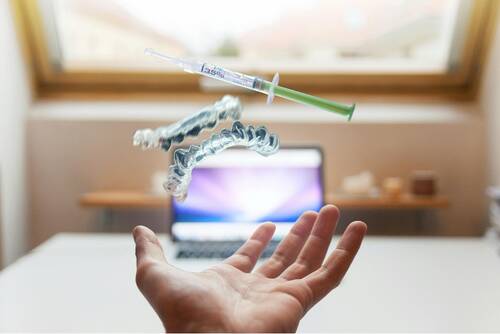
Understanding Orthodontics
Delving into the domain of orthodontics, one immediately encounters a discipline that plays an integral role in oral health. Orthodontics, a specialized branch of dentistry, focuses on correcting teeth and jaw alignment issues through the use of various appliances. An understanding of orthodontic terminology is a key component in comprehending this complex field. Orthodontic terminology includes a vast array of terms that describe conditions, processes, and equipment used in treatments. For instance, malocclusion refers to irregular alignment of the teeth, while brackets, commonly known as braces, are devices attached to teeth to correct such alignment issues. Additionally, retainers are appliances often used post-treatment to maintain the desired tooth position. In recent years, there have been significant advancements in orthodontic treatment methods, enhancing their effectiveness and improving patient comfort. The advent of clear aligners, such as Invisalign, has revolutionized the industry, offering a virtually invisible method for straightening teeth. In addition, the use of temporary anchorage devices (TADs) has increased precision in tooth movement, providing excellent results for complex cases. The science of orthodontics, with its specialized terminology and treatment advancements, is an essential aspect of oral health, contributing to improved aesthetics and functionality. (more…)
Orthodontic expanders are crucial in contemporary dental treatments, addressing both dental and skeletal discrepancies. These devices help create the necessary space in the mouth, facilitating proper alignment and bite. With advancements in technology, expanders have become more effective and versatile than before.
In orthodontics, expanders are essential tools used to address various issues related to dental misalignment and jaw discrepancies. They work by gradually widening the upper jaw to ensure that teeth are properly aligned and function efficiently. The significance of these devices lies in their ability to correct issues early on, potentially reducing the need for more invasive procedures in the future. Consulting with an orthodontist stevens point can provide valuable insights into the best treatment options available.
(more…)
Dental health is more than just a bright smile—it’s a gateway to your overall well-being. Poor oral hygiene can lead to serious health complications, including heart disease, diabetes, and even respiratory infections. While regular dental visits are essential, they’re not always affordable or convenient. Therefore, adopting effective daily habits is the best way to maintain healthy teeth and gums while minimizing costly interventions.
So, let’s explore nine tips that can help you achieve optimal dental health.
1. Floss Daily: The Missing Step in Many Routines
Most people just brush their teeth and think it’s enough, but even the best toothbrush can’t reach every nook and cranny of your mouth. That’s where flossing comes in. This simple practice removes food particles and plaque from between your teeth and under the gumline—areas where decay and gum disease often begin.
Daily flossing can reduce the risk of cavities and gingivitis while keeping your breath fresh. If you find it difficult to use traditional floss, try alternatives like floss picks or water flossers. Incorporating this step into your routine takes only a few minutes but yields significant benefits for your oral health.
Your smile is more than just a reflection of your mood or a means of communication—it’s a gateway to your overall health. While many people associate a bright smile with good hygiene or confidence, its impact goes far beyond appearances. The science of oral health reveals that maintaining a healthy smile is essential if you want to look after your entire body.
Here’s how your oral health connects to your overall health and why prioritizing your smile is one of the best things you can do for your body.
The Oral-Systemic Connection
The mouth is often referred to as the “window to the body,” and for good reason. It’s home to a diverse community of bacteria, both beneficial and harmful. While proper oral hygiene keeps harmful bacteria in check, neglecting your oral health can allow these bacteria to grow unchecked, leading to oral infections like gum disease and tooth decay.
But the effects don’t stop there. The inflammation and bacteria associated with oral health issues can spread to other body parts, contributing to systemic health problems.
(more…)
Maintaining good oral health goes beyond brushing and flossing at home; it involves regular dental visits for professional cleanings. While many of us may view dental cleanings as just another chore, they play a crucial role in keeping our teeth and gums healthy. If you’d like to understand better the importance of regular dental cleanings and how they can benefit your overall well-being, keep reading.
Preventing Tooth Decay and Gum Disease
One of the primary benefits of regular dental cleanings is the prevention of tooth decay and gum disease. During a cleaning, a dental hygienist removes plaque and tartar buildup that regular brushing and flossing may miss. Plaque is a sticky film of bacteria that can lead to cavities and gum inflammation if not addressed. Tartar, the hardened form of plaque, can only be removed by a dental professional. Keeping your teeth clean significantly reduces your risk of developing these common dental issues. Gum disease, which can range from mild gingivitis to more severe periodontitis, is particularly concerning. If left untreated, it can lead to tooth loss and has even been linked to systemic health issues, including heart disease and diabetes. Regular cleanings not only help keep your gums healthy but also provide an opportunity for your dentist to assess your risk factors and recommend appropriate preventive measures. (more…)
Key Takeaways
- Orthodontic treatments offer a range of benefits beyond aesthetics, such as improved oral health and function.
- Technology has broadened treatment options, providing more comfort and effective results for patients.
- Personalized care is essential for achieving optimal orthodontic outcomes.
If you're considering Invisalign treatment to straighten your teeth, you're likely wondering about the cost and what factors might influence it. In Mill Creek, WA, Invisalign offers a discreet and effective way to achieve a perfect smile, but understanding the cost can help you make an informed decision. This guide will provide an overview of Invisalign costs, factors that affect pricing, and ways to manage expenses.
What Is Invisalign?
Invisalign is an orthodontic treatment that uses clear, removable aligners to straighten teeth. Unlike traditional braces, which use metal brackets and wires, Invisalign aligners are virtually invisible, making them a popular choice for adults and teens who want a more discreet treatment option. The aligners are custom-made to fit your teeth and gradually shift them into the desired position. (more…)
In the quest for a perfect smile, many people in Mount Holly, NJ, are turning to Invisalign as a discreet and effective alternative to traditional braces. Invisalign clear aligners offer a modern solution for straightening teeth without the use of wires or brackets. If you’re exploring affordable Invisalign options in Mount Holly, this guide will help you navigate the best choices for orthodontic treatment in your area.
Understanding Invisalign
Invisalign is a popular orthodontic treatment that uses a series of clear, removable aligners to gradually straighten teeth. Unlike traditional braces, which use metal brackets and wires, Invisalign aligners are virtually invisible and can be removed for eating, brushing, and flossing. This makes them a convenient option for many adults and teens who prefer a more discreet approach to orthodontics. (more…)You may want to get that new tooth in place as fast as possible, but skipping crucial steps like waiting...
Author Interviews, Dental Research, Pediatrics / 10.09.2024
What to Know about Invisalign for Kids in South Surrey? How Is It Different from Adults?
Are you considering Invisalign for your child in South Surrey but wondering how it differs from the treatment adults receive? This particular procedure has become a popular choice for orthodontic care, offering a discreet and convenient way to straighten teeth. However, the approach for children can differ significantly from that for adults. This article will explain what you need to know about Invisalign for kids and how it stands apart from adult dental treatments in South Surrey.
Understanding Invisalign for Kids
Invisalign South Surrey for Kids is specifically designed to cater to the unique dental needs of growing children. The treatment focuses on aligning teeth and guiding the proper jaw and teeth development. This early intervention is crucial in preventing more severe orthodontic issues later in life. While the clear aligners work similarly to those for adults, the process and considerations are different. (more…)
Introduction
Teeth aligners can give you a hassle-free smile makeover, boosting your appearance and confidence. Cost is often a top question if you're considering them This guide will break down the factors influencing the cost of dental aligners in India, helping you make an informed decision.
What Are Teeth Aligners?
Teeth aligners, or clear aligners, are orthodontic devices used to straighten crooked teeth. These aligners can correct your teeth without using metal wires and brackets as traditional braces. They are made of smooth, transparent plastic material. These aligners are custom-made to fit over teeth tightly and are nearly undetectable when worn. Aligner treatment consists of a series of aligners you need to change per your treatment plan. You need to wear these aligners for a set amount of time—typically 22 hours a day for effective results. You can take them out, eat your food, and maintain your oral health. The aligners will gradually move the teeth into their desired positions and address various problems, including crowding, spacing, overbites, and underbites. People choose teeth aligners because of how they look. People opt for teeth aligners because they look good and help discreetly achieve a straight, confident smile. They're comfortable, easy to use, and make it easier to maintain good dental hygiene during treatment.
(more…)
Dental Research / 08.08.2024
How to Maintain Strong Gums and Teeth
Regular dental check-ups, proper brushing and flossing, a balanced diet, and stress management are key practices that support a healthy...
In the whirlwind of family life, scheduling individual dental appointments for everyone can feel like a logistical nightmare. But what if there was a way to streamline your family's oral healthcare needs with a single, convenient solution? Enter the world of family dentistry! Family dentists offer comprehensive care for patients of all ages, from the tiniest tots to grandparents. By choosing a family dentist, you can ensure your entire family receives the personalized care they need for a lifetime of healthy smiles. Moreover, good oral health is not just about a pearly white grin; it plays a crucial role in overall well-being, impacting everything from digestion to self-confidence.
The Numerous Benefits of Family Dentistry
Choosing a family dentist offers a multitude of benefits for your family's oral health journey:
- Convenience and Streamlined Scheduling: One of the most significant advantages of family dentistry is convenience. Family dentists can handle all your family's dental needs under one roof, eliminating the need to schedule separate appointments with different dentists. This saves you time and ensures everyone in the family receives regular dental care.
- Familiarity and Comfort: Regular visits with the same dentist foster a sense of trust and familiarity. This is especially important for young children who may experience anxiety during dental visits. A familiar environment and a dentist they know can make a world of difference, transforming a potentially stressful experience into a positive one.
- Continuity of Care: A family dentist can track your family's dental history, allowing for personalized treatment plans and early detection of potential problems. This continuity of care is crucial for maintaining optimal oral health throughout your life. Your dentist can monitor the development of your children's teeth, identify any potential issues early on, and provide preventative measures to avoid future complications.
- Understanding Family Dental Needs: Family dentists are trained to address the unique dental needs of each family member. From the eruption of a child's first tooth and the development of their primary and permanent teeth to the concerns of adults and seniors, family dentists are equipped to handle all stages of oral health.
- Comprehensive Preventive Education: A family dentist not only provides routine care but also emphasizes preventive education tailored to your family’s specific needs. They can teach children the importance of brushing and flossing, provide dietary recommendations to support healthy teeth, and offer advice on preventing dental issues like cavities and gum disease. According to these dentists in San Antonio TX, by equipping your family with the knowledge to maintain good oral hygiene, they help ensure a lifetime of healthy smiles.
A chipped tooth, a stubborn stain, or a gap between your teeth can significantly impact your smile and self-confidence. The good news is that modern dentistry offers a variety of solutions for fixing damaged or discolored teeth, allowing you to achieve the smile you've always dreamed of. The reasons for tooth damage and discoloration are numerous. Accidents, chewing on hard objects, teeth grinding, and even the natural aging process can all take a toll on our teeth. Certain lifestyle habits like smoking, excessive coffee or tea consumption, and neglecting oral hygiene can also contribute to discoloration. Regardless of the cause, there's a treatment option available to restore your smile's beauty and function. However, consulting a dentist to determine the best course of action for your specific needs is crucial.
Understanding the Types of Damage and Discoloration
Tooth damage and discoloration can manifest in various ways:- Chipped or Cracked Teeth: These can be caused by accidents, biting down on hard objects, or teeth grinding. The severity of the chip or crack will determine the most suitable treatment.
- Worn Teeth: Over time, teeth can wear down due to age, grinding, or acidic foods. This can expose the underlying dentin, making teeth appear yellowed.
- Stains and Discoloration: Coffee, tea, red wine, and smoking are notorious for staining teeth. The aging process and certain medications can also contribute to discoloration. The extent and depth of the stain will influence the appropriate whitening method.
Oral health is a crucial aspect of overall well-being, affecting people of all ages, from toddlers to the elderly. It goes beyond just having a bright smile; good oral hygiene can prevent a range of health issues, including gum disease, infection, and heart disease. To safeguard the dental health of every family member, adopting comprehensive oral care practices is essential. This article delves into practical tips that will help maintain excellent oral hygiene for the whole family, ensuring everyone enjoys a healthy, vibrant smile.
- Start Oral Hygiene Early
- Regular Dental Checkups
Are you missing a tooth?
If you have lost a tooth, don't worry; you're not alone! Many people lose teeth due to accidents, tooth decay, or gum disease. But did you know that options are available to replace a missing tooth?
Do you know the options available to replace a missing tooth?
Yes, there are a few options to replace a missing tooth. One standard option is a dental implant. Another option is a dental bridge, where a false tooth is attached to the teeth on either side of the gap. There are also partial or complete dentures and removable replacements for missing teeth.
(more…)
Dental Research / 18.06.2024
The Benefits of Regular Dental Check-Ups: Ensuring Lifelong Oral Health
Key Takeaways
- Regular dental check-ups play a critical role in maintaining oral health and preventing dental issues.
- Professional cleanings remove plaque and tartar that are difficult to eliminate with at-home brushing and flossing.
- Early detection and treatment of dental problems can save on more extensive and expensive procedures in the future.
- Routine dental visits contribute to overall health by potentially identifying systemic issues like diabetes or heart disease.
Dental Research, Lifestyle & Health / 25.05.2024
Everyone Can Have a Healthy Smile: Practical Tips for Optimal Oral Health
 Table of Contents
Table of Contents
- The Importance of Oral Health
- Routine Dental Checkups
- Proper Brushing and Flossing Techniques
- The Impact of Diet on Oral Health
- Lifestyle Choices Affecting Oral Health
- Benefits of Preventative Care
Author Interviews, Dental Research / 12.05.2024
Gum health is a key factor for general health throughout life
Brussels, 10 May 2024. Gum health may play a pivotal role in overall health and quality of being, and deserves to be better acknowledged and explored by the research community. That is why the EFP promotes Gum Health Day 2024 on 12 May, an outreach initiative celebrated in more than 30 countries around the world to raise awareness among the medical profession and the general public of the importance of periodontal health. Dr Mia Rakic, Gum Health Day 2024 co-ordinator and member of the executive committee of the EFP (European Federation of Periodontology, efp.org), explains why Gum Health Day 2024 focuses on Generation Z and why gum health is so relevant:
(more…)
So, you've probably heard about ultrasonic tooth cleaners, right? They're like the new kids on the block in the world of dental hygiene. These gadgets use high-frequency sound waves – we're talking ultrasonic vibrations – to gently yet effectively break down and remove all sorts of nasties from your teeth: plaque, tartar, the works. The cool part? They do this without being harsh on your gums or enamel. This is key because, let’s face it, no one wants to trade in tartar for tooth sensitivity. It’s about getting your pearly whites clean without the downsides of traditional scraping tools that sometimes feel like a DIY project gone wrong in your mouth.
Why Ultrasonic Cleaners Could Be Your Teeth's New Best Friends

Now, why are these ultrasonic wonders good news for your chompers? Well, think about the usual suspects that dentists always warn us about – plaque and tartar. They're not just cosmetic issues; they're like the bad guys plotting against your oral health. Ultrasonic tooth cleaners step in as the superheroes, targeting these troublemakers with precision. This means less plaque and tartar, which in turn means a lower risk of gum disease and cavities. It’s a domino effect, really. Plus, these cleaners often reach where regular brushes can't, like those sneaky spots between your teeth and along your gum line. So, you’re not just cleaning; you're doing a deep clean every time.
(more…)- 1
- 2

